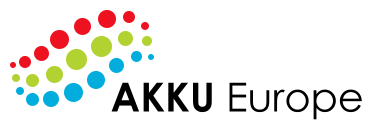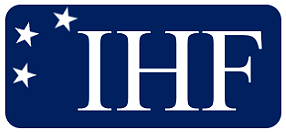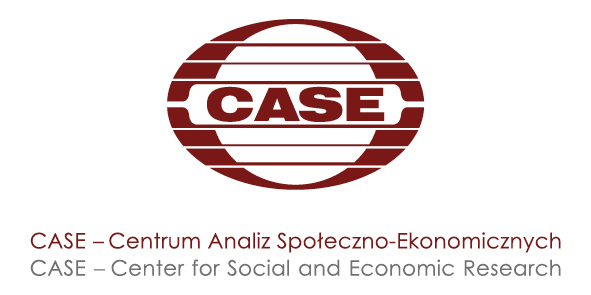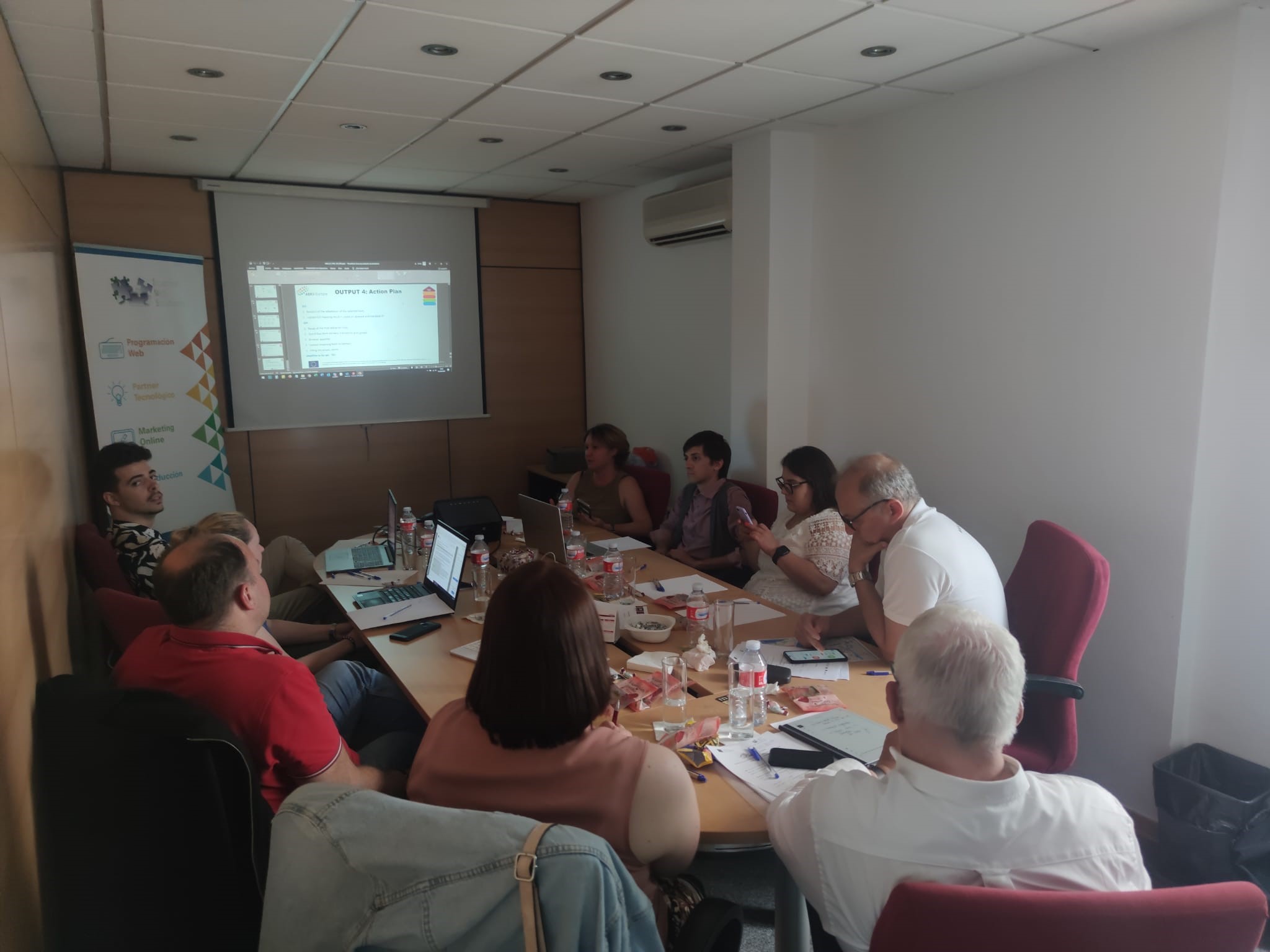
Co-funded by the EU, AKKU Europe is a project with the objective of improving workability for micro and small enterprises through multimedia tools. The meeting attendees represented seven institutions from six different countries (Spain, Italy, Belgium, North Macedonia, Germany and Poland). In order to take inventory of all the actions done and plan future steps, the consortium met in Malaga, Spain, in a meeting hosted by the Spanish partner, Internet Web Solutions. Among the products created during project implementation, a set of more than 30 tools in various formats (infographics, videos, excel-based, brochures, questionnaires, checklists) as well as a selection of programmed, interactive ones were developed. The project is also concentrating its efforts on disseminating its results to all kinds of interested parties: lawmakers and authorities, MSMEs (at both management and staff levels) and VET and Adult Education professionals The meeting was held without incidents and all the topics on the agenda were discussed. All members of the consortium were satisfied with the development and objective achievement of the Project.
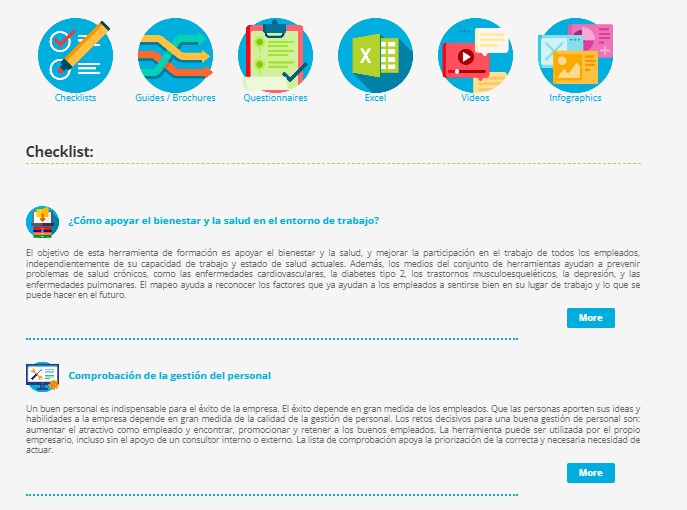
Summer 2021 market the period during which all partners consolidated their workability tools extrapolated at national level from literature sources specialised on the topics – from both a medical and managerial perspective. During the third transnational project meeting (Sep 2021), partners agreed on a common template that could provide for clear reference to readers and users of the AKKUEurope Toolbox: • Concrete description of its aims • Scale and scope of the tool • Target group of reference at organisational level (i.e., admin staff, clerks, directors) • Benefits of the tool, in terms of both ease of use and practical outcomes & impacts • Estimation of the overall duration • Practical recommendations on how to use the tool In order to facilitate the deployment of the given tool, partners linked a checklist in which readers and users can report action plan(s), procedures and processes, cost estimation of the correlated activities, shares of roles and responsibilities. The full list includes the following: 1. On boarding – Induction of new employees 2. Checking Workability – Management 3. Checking Workability – Employees 4. Ensuring learning success – Applying new knowledge in everyday working life 5. The office workplace 6. Employee appraisal 7. Personnel Management 8. No stress with the stress – Stress Check 9. Working sessions: interviews, meetings and team work 10. Designing change management processes in small companies 11. The “WAI” (Work-ability Index) Questionnaire 12. Checklist and recommendations for safety at work 13. The IPAQ Questionnaire 14. Mindfulness – A tool to increase concentration 15. Healthy workplace – Key area of influence 16. The Return to work process 17. How to support wellbeing and health in the workplace? 18. Assessment of employee’s motor and sensory skills and workplace accessibility 19. Assessment of employees’ health situation and ability to work 20. Lighting installations for better workability 21. Remote work: Do our workspaces fit our needs? 22. Labour risks and prevention services 23. Business Development Plan 24. What kind of leader are you? 25. Labour Risk Prevention The ones that users see above are the result of a multi-stage assessment that lead us to filter our final choices based on their level of coherence and consistence with project’s methodology and perimeter of the analysis. All resources are in open access format, and are available for free via the official Open Educational Resource platform of the project. Soon, the training material will be uploaded in multilanguage version on: https://www.akkueurope.eu/toolbox.php
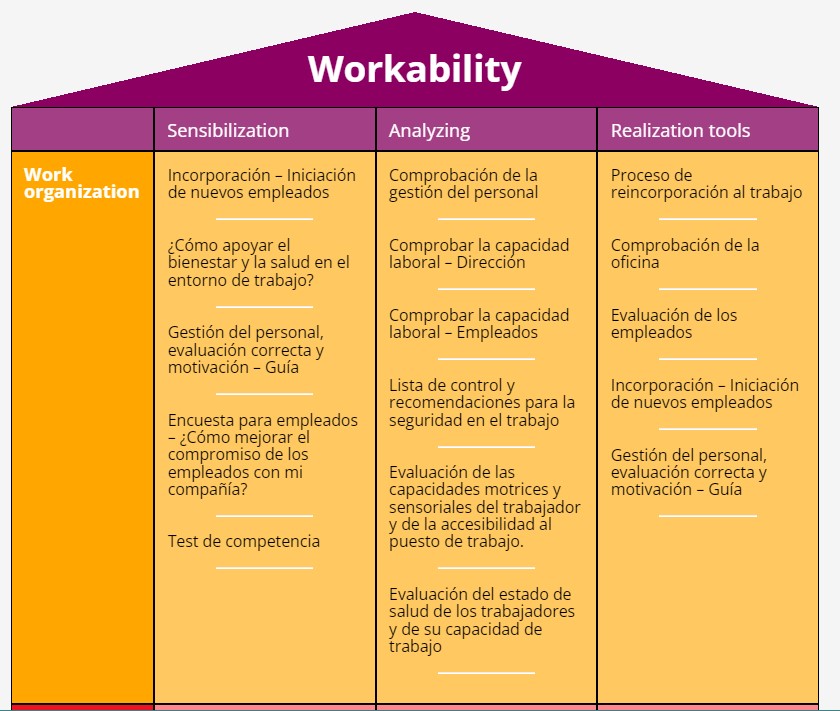
At the beginning of June, the AKKU’s partnership gathered together during the second transnational project meeting (TPM) of the AKKU project to discuss more in details the concrete steps needed to finalise and consolidate the toolbox for workability: a very comprehensive and detailed set of resources that targets (i.e., micro-entrepreneurs and admin staff of MSMEs) can leverage on to assess, analyse and foster working conditions and overall organisation climate of their firms. The aforementioned classification includes means that are instrumentals in strengthening the ability-to-work’s experience in terms of: • Employees’ health and performance • Knowledge, professional skills (competence) • Values, attitudes, motivation • Work environment, work organization, leadership In total, we clustered more than 30 tools that provides for significant insights, recommendations and To-Dos to enhance work-ability conditions at micro-enterprise dimension. These resources have been extrapolated from scientific literature and trustworthy sources (i.e., medical and management journals) so as to compile our toolbox with up-to-date and state of art knowledge on the matter. Each partner was responsible of carrying out an assessment at national level – at exception of the Belgian partner IHF, which look into EU and international sources – to take stock of consolidated and robust work ability-related publications and materials. After a first round of desk research, each tool has been further classified based on: • Target group of reference (i.e., management and / or employees) • Branch / sector, and domain of interest (i.e., remote working) • Aims and objectives • Content’s description • Benefits • Supporting format (i.e., paper vs digital version) • Link to the House of Workability: CRITERIA vs LEVEL • Source and bibliography The Second TPM represented a great opportunity for all partners to evaluate internally at consortium level current progresses and achieved results. Most importantly, partners took this opportunity to agree on the final outline of the toolbox in terms of content, structure and usability. To know more about the background, scale and scope of the AKKU project, please visit: www.akkueurope.eu
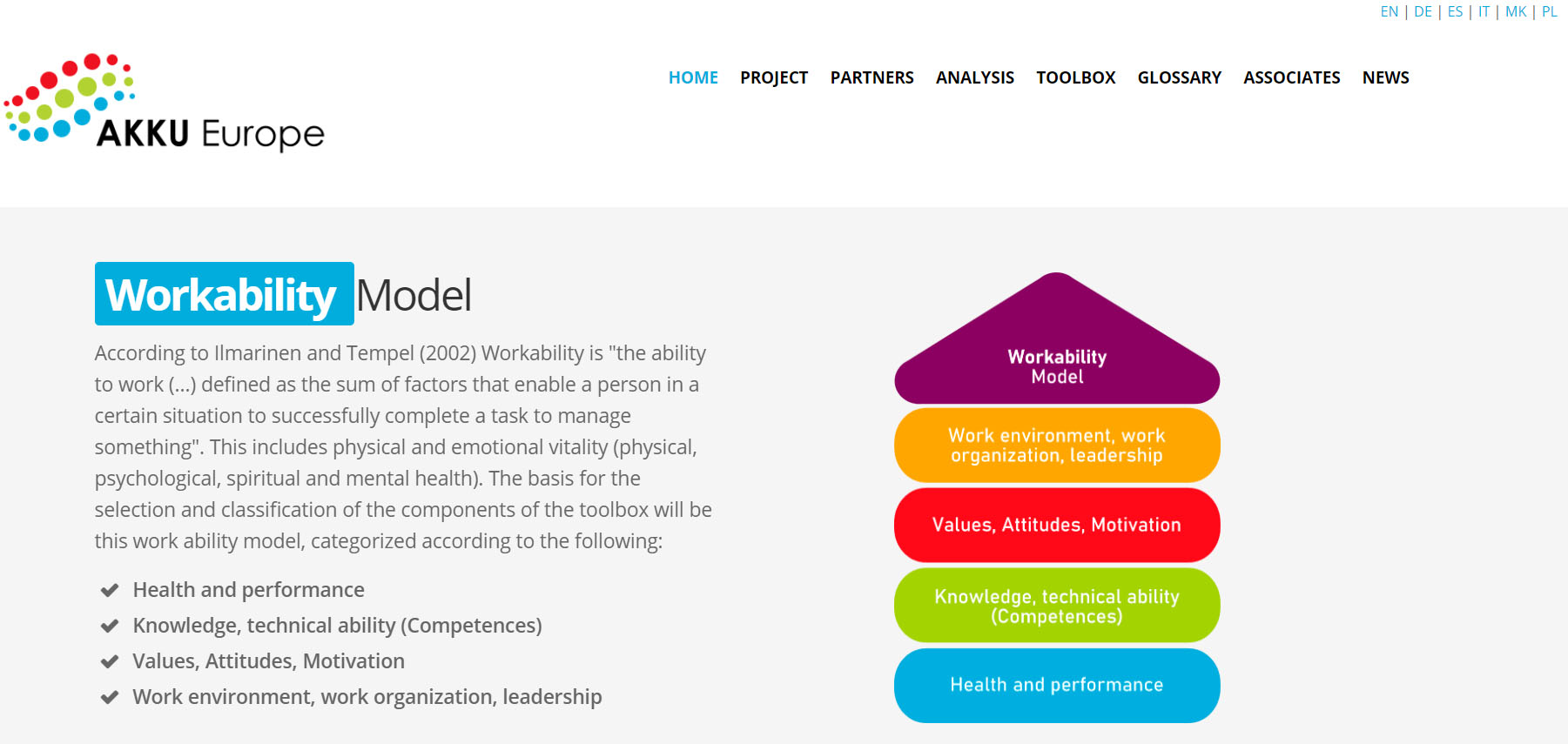
Officially kick-started in November 2020, AKKUEurope is an international project co-funded by European Commission under the Erasmus+ Programme. SMEs play an important role in the European economy but are particularly affected by a shortage of young talent, as they are unable to compete with the services offered by Medium-Sized Enterprises and large companies in various respects (e.g. job security, pay levels, promotion opportunities). SME can and must react to this by paying special attention to maintaining the workability and employability of their existing workforces. The aim of the AKKUEurope project is the systematic development and validation of a multimedia toolbox suitable for the target group on the basis of existing instruments, together with the owners and employees of selected SME companies. So far, thanks to the precious contribution of the Spanish partner Internet Web Solution (IWS) partners completed a very important achievement which is the testing and validation of the Online Educational Resource Platform (OER) associated to the project. The OER Platform is freely available for all user (I.E. no log-in and credentials required) and in multilanguage version (EN, GE, IT, MK, PL, ES) so to widespread the impact and visibility of its content. For the next two years, the Platform will host all news about the projects, deliverables produced by the partnership and relevant information addressing the topic of workability in Europe. Each section of the platform is the digital “repository” of a series of sources and resources that partners will develop and implement in the following next two years. Particularly relevant will be the ANALYSIS of the existing tools for employability and the following TOOLBOX – two very strategic deliverables of the project. The Analysis of the existing tools follows two main criteria: • What the organisational dimension addressed by these tools? - Health and performance - Knowledge, technical ability (competence) - Values, attitudes, motivation - Work environment, work organization, leadership • What is their expected impact? - Enhancing major awareness on the topic - Analysis and assessing the current status on workability dynamics - Implementing new workability models
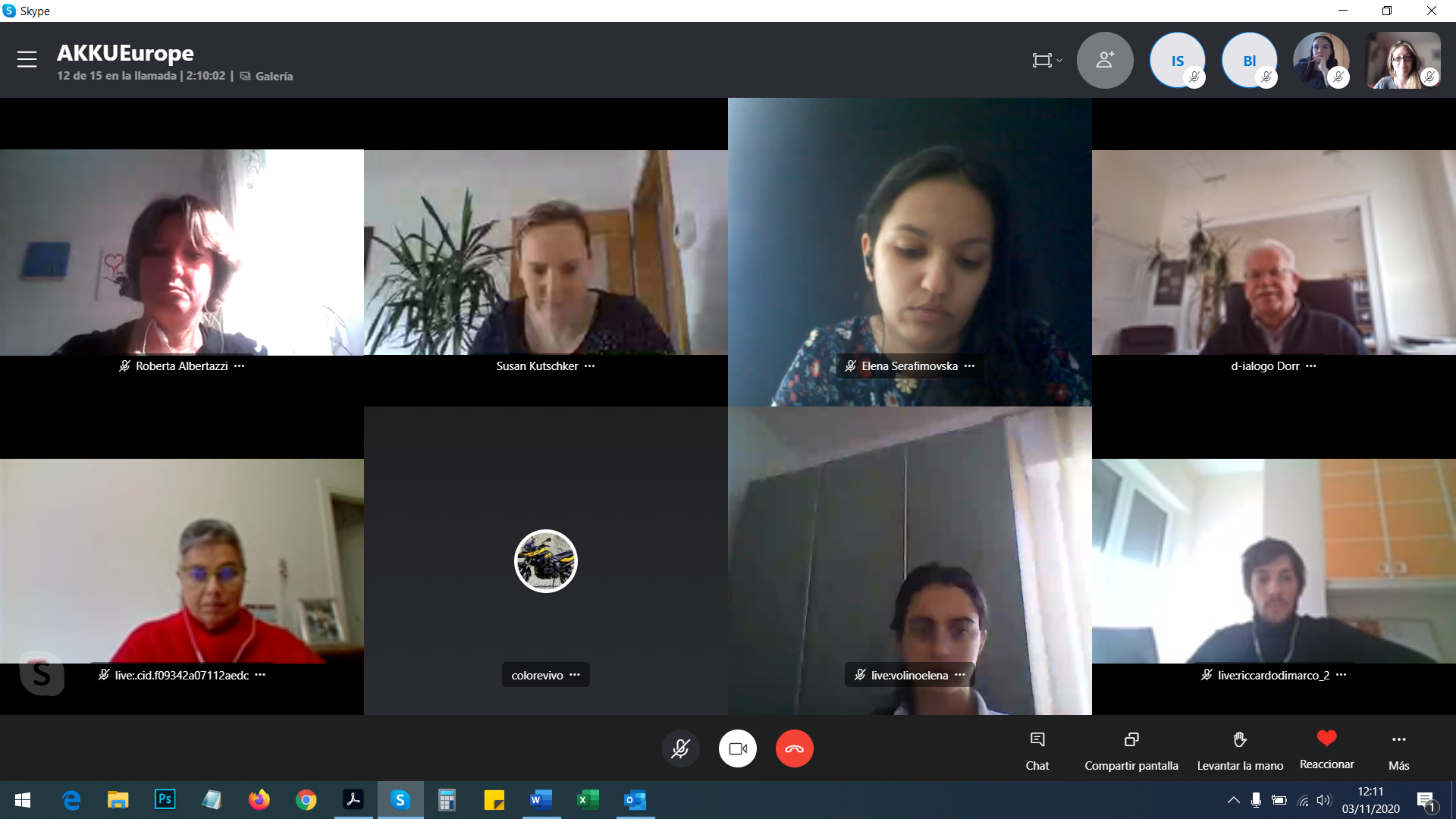
On November 3rd 2020, AKKUEurope consortium joined the online Kick-Off Meeting, a Project co-funded by the Erasmus Plus Programme of the European Commission, which brings together seven Partners from six countries (Belgium, Germany, Italy, Poland, Spain, The north Republic of Macedonia). The KOM, originally planned in Forst, Germany, was held online due to COVID-19 restrictions. The aim of the AKKUEurope project is the systematic development and validation of a multimedia toolbox suitable for the target group on the basis of existing instruments, together with the owners and employees of selected SME companies. SMEs play an important role in the European economy but are particularly affected by a shortage of young talent, as they are unable to compete with the services offered by Medium-Sized Enterprises and large companies in various respects (e.g. job security, pay levels, promotion opportunities). SME can and must react to this by paying special attention to maintaining the workability and employability of their existing workforces. In addition to the classic occupational health and safety measures, measures for the preventive maintenance of work and employability must be implemented to a greater extent, so that employees can and want to carry out their work until the planned retirement age. A comprehensive promotion of workability can help to close this gap. In this context, Partners will carry out a series of well-defined activities that will lead to the production of tangible and operational results, such as: • Analysis of existing instruments in the partner countries • Adaptation of the instruments and completion of the toolbox • Media implementation of the instruments AKKUEurope results will be practical and relevant solutions for micro and small businesses, available in multilingual versions, free and without restrictions through the OER platform. During the meeting, the consortium discussed about the overall implementation of the project, defining timelines and respective duties in the following months. At first, partners will go through an in-depth analysis of the existing instruments and theories for the implementation of workability models at business level. Later on, this cluster of tools will be refined on the basis of targets’ needs and their daily operational context. After translations, the resulting toolbox will be implemented into the AKKUEurope OER Platform: such digital environment will represent a repository of project’s outputs, results, news and contacts.
